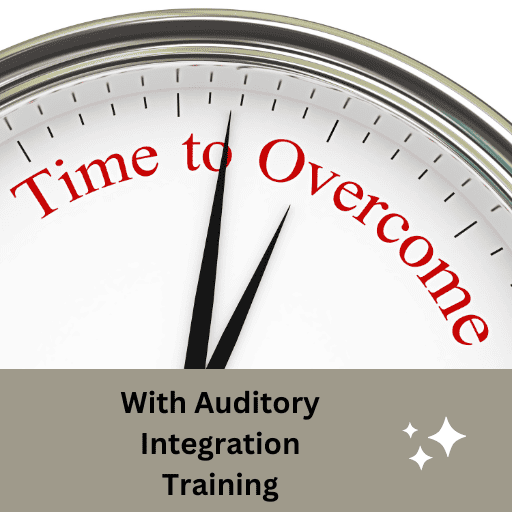This is my testimony of how auditory integration training improved my emotional health. Do you know that the auditory sense is one of our strongest senses, affecting our emotional health as well as our physical health. I experienced this firsthand.
I Did Not Outgrow My Anxiety
Ever since I was a toddler, I suffered from very bad anxiety. I say, had, because Auditory Integration Training resolved my very bad anxiety. When I felt upset and irritated, I consistently ended up shutting down, withdrawing. My family, and I, struggled with these behaviors for a very long time into my teen years. Yes, I felt these struggles.
For the longest time, my parents tried to figure out ‘the why’ and I tried to be calmer. Tried, because it was not a choice. My body did what it did. Would one-on-one therapy with a counselor work? At the young age of 4, counseling was our hope. Unfortunately, my parents had to keep trying different ways to improve my emotional health. I continued to struggle into my preteen years. Luckily, my parents never stopped hoping to find that answer to improve my emotional health.
Finally, Answers with Cheri Moore
At age 12, my parents discovered Cheri Moore. After hearing my story and playing with me (felt like play), Cheri shared that sound sensitivity, hypersensitivity, is a type of Sensory Processing Disorder. Wow! Could this sensitivity to sound be causing me to feel so much anxiety that it manifested itself into looking like other illnesses?

Auditory Integration Training is therapeutic music that is like an exercises program for the ears based on a very specific hearing evaluation. With Cheri’s help, the audiologist agreed to complete tests for hearing sensitivity in a way recommended by Dr. Berard. Hearing evaluation results were used to strengthen my ears in a way that kept what I felt inside my body calm. I enjoyed listening to the music and Cheri’s listening basket ideas.
For me, an extra benefit of Auditory Integration Training was that I could finally listen to a conversation in noisy places, distinguishing between similar sounds. Essentially, Auditory Integration Training helped both my ears work together, to understand and interpret what I heard!
Why Does Auditory Integration Training Calm?
Auditory Integration Training music calms because the recorded music consists of modulated sounds and very diverse music versus today’s music full of repetition. What does ‘modulated’ mean? Modulated means that the frequency pushed down in its volume, intensity, is the frequency shown as too sensitive on the hearing test. The volume of other frequencies is constantly increased and decreased to keep the brain actively listening. Think of the music as “Ear Pushup Exercises.” The listening protocols are based on Dr. Berard‘s years of work.
My Life After Auditory Integration Training
In my personal experience, my life after auditory training was completely different. Before, I would often get upset when loud noises were present and shut down because of the discomfort. I struggled in school for a while because I was often distracted. I worked with Cheri for about two months but continued Auditory Integration Training during the summer months. The training wasn’t difficult; it was actually pretty relaxing. I would put on headphones and listen to different songs. After doing that for some time I started to feel extremely different. I began to tolerate loud noises much better. And I could focus on listening when there were noisy distractions. I now enjoy parties, concerts and even family dinners!
How Auditory Integration Training Improved My Emotional Health
The filtered music feels calming and makes you want to dance. After just five days of listening, you receive another hearing test to guide the next five days of listening. Amazing to think that the brain has already changed its response to a sound frequency requiring a different program. Even though auditory integration training is calming, there are a few days you feel more emotional. So, keep your sound environment quiet. The ears and brain can only handle so much sound energy stimulation. Cheri warned me that calmness helps the brain to feel safe to dump emotions, let them go. Emotional dumps are healing. Although, I much rather dance!

Maintaining Progress with a Holistic Approach
Cheri uses a holistic approach to identify health issues that weaken the hearing system. If one ear hears better than the other ear, auditory integration training strengthens the weaker ear by putting more volume in that ear.
Even when you do not know why your brain needs healing, there are clues. Cheri knows what to ask. Sounds can become a source of joy. The first step is to ask for help by scheduling a FREE Phone Session. Cheri works with you holistically to improve your ability to respond and make progress.
Cheri
The Brain Can Change Giving You Sound Tolerance
For those with brain or birth injuries, you can retrain the brain to process auditory information more effectively. Just like me, Auditory Integration Training can improve your tolerance to sounds. One of Norman Doidge’s books, The Brain’s Way of Healing, shares the benefits of auditory training in the chapter, A Bridge of Sound.
“A Bridge of Sound: the special connection between music and the brain. A dyslexic boy reverses his misfortune; A mother’s voice; Rebuilding the brain from the bottom up: autism, attention deficits, and sensory processing disorder; Solving the mystery at the Abbey: how music raises our spirits and energy.”
Norman Doidge

An Example: Did you know that after suffering from ear infections, enlarged adenoids, a deviated septum, or even chronic congestion a weakness develops along your auditory neural pathways? All these increase your risk of developing sound intolerance, hypersensitivity. Once well you need auditory integration training to strengthen your hearing system; a type of physical therapy for your hearing system and brain.
Have you thought of brain plasticity from the perspective of negative impacts, injury or illness. Weaken neural pathways can be strengthen. You can even strengthen new neural pathways.
Your brain must receive consistent, strong sound energy stimulation to respond and maintain benefits of Auditory Integration Training!
Cheri Moore
Cognitive Training for the Brain
After the client completes auditory integration training, especially in cases of Central Auditory Processing Disorder (CAPD) or hearing loss, Cheri encourages completion of an on-line neurocognitive training programs like Hearing Builders or Brain HQ. The Hear Builders program improves auditory memory, comprehension, and so much more. Brain HQ is unique in its ability to improve auditory and visual processing skills.
By providing mental and physical exercises with Auditory Integration Training, individuals are given the tools to beat challenges related to hearing issues and neurological conditions, creating better auditory skills and communication abilities.

Who Benefits
Ages three and older, without and with a developmental diagnosis like: ADHD, dyslexia, or autism benefits form auditory integration training. It was a wonderful feeling to slowly realize you feel less anxious. Why? Because they are no longer anxious about how loud someone will talk, the loudness of a store. Did you know that people isolate, turn down invitations to events because of the discomfort they physically experience from sound that is louder to them than others. Thus, they turn down fun activities and become lonely.
Reach Out for Holistic Help
I strongly recommend auditory training! Or call Cheri to receive help for a comprehensive hearing evaluation. Because if hearing issues are the reason behind your anxiety and depression, you need help. Are you receiving treatment for mental health issues, but not making progress?
Everyone with sound intolerance, not just people with mental struggles, benefits from Auditory Integration Training. Take the time to improve your listening skills and cognitive functions concurrently. Enjoy better communication, academic and professional achievements, and overall cognitive stability. By combining auditory processing exercises with cognitive tasks, people sharpen their ability to interpret auditory information while enhancing memory, attention, and problem-solving skills. We all benefit form flexible thinking, listening skills, comprehension with remembering, and decision-making skills. Ultimately, auditory integration training forms a stronger connection between the mind and ears, enhancing various aspects of daily functioning and promoting greater success in both personal and professional endeavors.
The auditory sense holds immense power, impacting both emotional and physical well-being. For many, like myself, auditory challenges can manifest as anxiety and affect daily life. Discovering auditory integration training was transformative. This therapeutic method strengthens the ears through tailored exercises, benefiting those with various health issues such as hearing loss or sensory processing disorders. Moreover, it significantly aids mental health conditions like ADHD and depression by addressing sensitivities and enhancing focus. Personally, this training revolutionized my life, enabling me to navigate social situations comfortably. I urge anyone facing similar struggles to explore auditory training—it’s not just about your hearing.
Signed, Reclaiming Joy and Confidence


